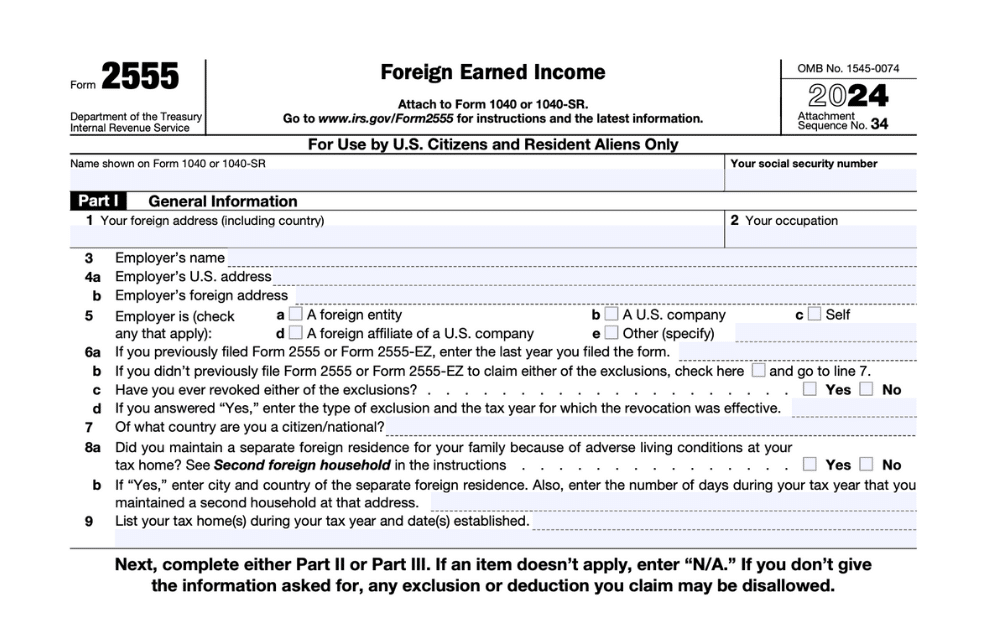The Child Tax Credit for Expats: Are You Eligible?

- What Is the Child Tax Credit?
- Do the Rules of the 2021 Child Tax Credit Still Apply?
- Can You Claim the Child Tax Credit While Living Abroad?
- Can You Claim the Child Tax Credit if Your Child Lives Abroad?
- Can US Expats Also Claim the Foreign Earned Income Exclusion?
- Still Have Questions About the Child Tax Credit for Expats?
The Child Tax Credit can help parents reduce their US tax liability even while living abroad. The credit helps offset the cost of raising children, including everything from food and clothing to school expenses and childcare. But is the Child Tax Credit available for expats?
At Greenback Expat Tax Services, many of our tax professionals are both expats and parents — just like you. That means we have expert knowledge on the subject and are here to tell you everything you need to know in this tax guide!
Key Takeaways
- The Child Tax Credit is a tax credit that parents can use to reduce their US tax bill and even potentially receive a refund.
- While the American Rescue Plan changed the terms of the Child Tax Credit for tax year 2021, it has reverted to its standard terms since 2022.
What Is the Child Tax Credit?
The Child Tax Credit (CTC) lets parents deduct a certain amount from their US tax bill for every qualifying child, up to $2,000 per child. For example, if a couple with a “married filing jointly” filing status has two children who qualify for the CTC, they could reduce their US tax obligation by $4,000.
The CTC is also partially refundable, even if taxpayers have no tax liability. The Additional Child Tax Credit, or the refundable portion of the Child Tax Credit, is $1,900 per qualifying child for the 2024 tax year (to be filed in 2025).
So, how do you know if your child qualifies? In most cases, they must:
- Be a US citizen.
- Have a valid Social Security number (SSN) before the end of the tax year.
- Be 16 or younger at the end of the tax year.
- Live with the parent claiming the credit for at least half of that year.
It’s important to note that your eligibility for the Child Tax Credit may depend on your adjusted gross income. For families to qualify for the full $2,000 credit per child, their adjusted gross income must be under $400,000 for joint filers and $200,000 for single filers.
The credit begins to phase out for higher-income taxpayers, so it’s crucial to understand how your income affects your eligibility when it’s tax filing time. You can use IRS Schedule 8812 (Form 1040) to figure out your Child Tax Credit (CTC), Credit for Other Dependents (ODC), and Additional Child Tax Credit (ACTC).
These are the usual parameters for the yearly Child Tax Credit. However, in 2021, the rules were temporarily changed. For many Americans, the 2021 Child Tax Credit was an improvement over the standard credit of other years. But do those changes still apply?

Are You Ready to Move Abroad?
Choose the answer to each question that best describes you or your current situation, and learn how ready you are to start a life abroad.
Are You Ready to Move Abroad?
"*" indicates required fields

You have an adventurous spirit but you may need to prepare a bit more to ensure a smooth transition abroad. Consider researching more about the cultural, legal, and financial aspects of living overseas.
You’re on the right track. You’ve started to think about what life abroad will entail. Keep building on your preparations to avoid any surprises once you’ve moved.
You’re ready to move abroad! You seem well-prepared and have done your homework! You’re ready to embrace the expat life with confidence.
Do the Rules of the 2021 Child Tax Credit Still Apply?
Unfortunately, the American Rescue Plan’s temporary increase to the Child Tax Credit expired at the end of 2021. Since 2022, the Child Tax Credit has reverted to the standard parameters.
In March 2021, President Biden signed the American Rescue Plan, a $1.9 trillion stimulus package designed to ease the economic burdens of the COVID-19 pandemic. One way the Plan does this is by temporarily changing the Child Tax Credit for some parents.
These changes include:
- Raising the maximum age for a qualifying child from 16 to 17.
- Increasing the Child Tax Credit amount to $3,600 for each qualifying child ages 0–6 and $3,000 for each qualifying child ages 7–17.
- Making the Child Tax Credit fully—rather than partially—refundable.
Allowing parents to receive up to half of their Child Tax Credit in advance through six monthly payments from July 2021 to December 2021.
The 2021 changes were only temporary, and the normal rules applied from 2022 onward.
Can You Claim the Child Tax Credit While Living Abroad?
Many expats wonder whether they can claim the Child Tax Credit while living abroad. The good news is that the eligibility rules are the same, regardless of where you reside. However, claiming the Foreign Earned Income Exclusion (FEIE) may affect your eligibility for the full credit.
You can claim the Child Tax Credit as an expat if you have qualifying children. However, if you take advantage of the FEIE, it may limit or even eliminate the amount of the Child Tax Credit you can claim. Understanding how the FEIE and Child Tax Credit interact is important to maximize your tax benefits.
Remember that as a US citizen or resident alien living abroad, you’re still required to file a US income tax return if you meet the filing thresholds, even if you’re paying taxes in your country of residence. When properly applied, the Child Tax Credit can be a valuable tool in reducing your overall tax burden.
Can You Claim the Child Tax Credit if Your Child Lives Abroad?
We know that American parents living abroad may be eligible for at least the standard Child Tax Credit. But what if your children are living abroad instead of you?
For a child to qualify, you must be able to claim them as a dependent. Among other factors, this requires that:
- They are a close relative, such as a son, daughter, stepchild, foster child, grandchild, sibling, niece, or nephew.
- They lived with you for more than half of the year.
- They provided less than half of their own support.
If these are true for your child living abroad, you may be able to claim a Child Tax Credit on their behalf. Otherwise, it won’t be an option for you.

Can US Expats Also Claim the Foreign Earned Income Exclusion?
Many expats use the FEIE when filing their US taxes. The FEIE lets Americans living abroad exclude their foreign income up to a threshold. The foreign-earned income exclusion for the 2024 tax year is $126,500.
However, you must show taxable income on your US tax return to qualify for the Child Tax Credit. If you use the FEIE to exclude your entire income from US taxation, you will not be eligible to claim the Child Tax Credit. If you use the FEIE but do not exclude your entire income, you can claim the Child Tax Credit but cannot receive the refundable portion of the credit.
If you have children who qualify for the Child Tax Credit, you may be better off using the Foreign Tax Credit (FTC) rather than the FEIE. In many cases, this will allow you to erase your US tax obligations while still receiving the Child Tax Credit as a refund.
Filers should remember that the due date for expat tax returns is typically June 15th, rather than the standard April 15th deadline for domestic taxpayers. However, if you owe taxes, interest still begins accruing from the April date. It’s advisable to file as early as possible to claim credits like the Child Tax Credit and avoid any potential penalties.
Still Have Questions About the Child Tax Credit for Expats?
Taxation for expats can be complicated, so if you still have questions about the Child Tax Credit—contact us, and one of our customer champions will gladly help. For specific advice on your tax situation, you can click below to get a consultation with one of our tax professionals specializing in US expat taxes.




